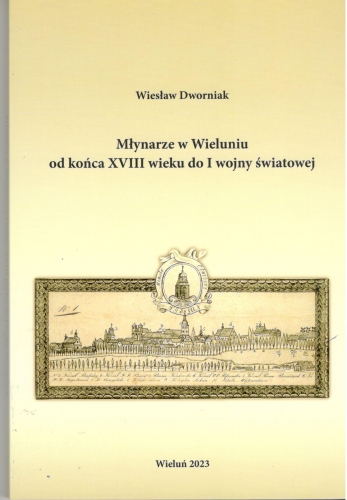Capitalism and political power
""Capitalism and Political Power"" presents the author’s research spanning economics, law and politics. Its central idea is that governments need two components to consolidate their position: legitimation and economic power. Legitimation is conferred by popular support, and economic power is based on natural, temporary possession of capital. This concept draws on Nouriel Roubini and Jeffrey Sachs’ seminal research and on George Tsebelis’ political theory, looking at political systems as structures formed by separate political agents – “veto players”. Substantial evidence is provided that the more complex the political system is, the more capital it holds, and that the government has only a relative impact on redistribution of capital, decreasing ever since the mid-1980s, as political systems began to move towards simplification and standardization.
Krzysztof Waśniewski (b. 1968), Doctor of Economics, Assistant Professor at the Faculty of Management of the Andrzej Frycz Modrzewski Cracow University in Cracow, Poland. His interests, which earlier focused on corporate strategies, now also include institutional economics and other social disciplines such as law, political sciences and sociology.
,""Capitalism and Political Power"" presents the author’s research spanning economics, law and politics. Its central idea is that governments need two components to consolidate their position: legitimation and economic power. Legitimation is conferred by popular support, and economic power is based on natural, temporary possession of capital. This concept draws on Nouriel Roubini and Jeffrey Sachs’ seminal research and on George Tsebelis’ political theory, looking at political systems as structures formed by separate political agents – “veto players”. Substantial evidence is provided that the more complex the political system is, the more capital it holds, and that the government has only a relative impact on redistribution of capital, decreasing ever since the mid-1980s, as political systems began to move towards simplification and standardization.
Krzysztof Waśniewski (b. 1968), Doctor of Economics, Assistant Professor at the Faculty of Management of the Andrzej Frycz Modrzewski Cracow University in Cracow, Poland. His interests, which earlier focused on corporate strategies, now also include institutional economics and other social disciplines such as law, political sciences and sociology.
,""Capitalism and Political Power"" presents the author’s research spanning economics, law and politics. Its central idea is that governments need two components to consolidate their position: legitimation and economic power. Legitimation is conferred by popular support, and economic power is based on natural, temporary possession of capital. This concept draws on Nouriel Roubini and Jeffrey Sachs’ seminal research and on George Tsebelis’ political theory, looking at political systems as structures formed by separate political agents – “veto players”. Substantial evidence is provided that the more complex the political system is, the more capital it holds, and that the government has only a relative impact on redistribution of capital, decreasing ever since the mid-1980s, as political systems began to move towards simplification and standardization.
Krzysztof Waśniewski (b. 1968), Doctor of Economics, Assistant Professor at the Faculty of Management of the Andrzej Frycz Modrzewski Cracow University in Cracow, Poland. His interests, which earlier focused on corporate strategies, now also include institutional economics and other social disciplines such as law, political sciences and sociology.
,""Capitalism and Political Power"" presents the author’s research spanning economics, law and politics. Its central idea is that governments need two components to consolidate their position: legitimation and economic power. Legitimation is conferred by popular support, and economic power is based on natural, temporary possession of capital. This concept draws on Nouriel Roubini and Jeffrey Sachs’ seminal research and on George Tsebelis’ political theory, looking at political systems as structures formed by separate political agents – “veto players”. Substantial evidence is provided that the more complex the political system is, the more capital it holds, and that the government has only a relative impact on redistribution of capital, decreasing ever since the mid-1980s, as political systems began to move towards simplification and standardization.
Krzysztof Waśniewski (b. 1968), Doctor of Economics, Assistant Professor at the Faculty of Management of the Andrzej Frycz Modrzewski Cracow University in Cracow, Poland. His interests, which earlier focused on corporate strategies, now also include institutional economics and other social disciplines such as law, political sciences and sociology.
,""Capitalism and Political Power"" presents the author’s research spanning economics, law and politics. Its central idea is that governments need two components to consolidate their position: legitimation and economic power. Legitimation is conferred by popular support, and economic power is based on natural, temporary possession of capital. This concept draws on Nouriel Roubini and Jeffrey Sachs’ seminal research and on George Tsebelis’ political theory, looking at political systems as structures formed by separate political agents – “veto players”. Substantial evidence is provided that the more complex the political system is, the more capital it holds, and that the government has only a relative impact on redistribution of capital, decreasing ever since the mid-1980s, as political systems began to move towards simplification and standardization.
Krzysztof Waśniewski (b. 1968), Doctor of Economics, Assistant Professor at the Faculty of Management of the Andrzej Frycz Modrzewski Cracow University in Cracow, Poland. His interests, which earlier focused on corporate strategies, now also include institutional economics and other social disciplines such as law, political sciences and sociology.
,""Capitalism and Political Power"" presents the author’s research spanning economics, law and politics. Its central idea is that governments need two components to consolidate their position: legitimation and economic power. Legitimation is conferred by popular support, and economic power is based on natural, temporary possession of capital. This concept draws on Nouriel Roubini and Jeffrey Sachs’ seminal research and on George Tsebelis’ political theory, looking at political systems as structures formed by separate political agents – “veto players”. Substantial evidence is provided that the more complex the political system is, the more capital it holds, and that the government has only a relative impact on redistribution of capital, decreasing ever since the mid-1980s, as political systems began to move towards simplification and standardization.
Krzysztof Waśniewski (b. 1968), Doctor of Economics, Assistant Professor at the Faculty of Management of the Andrzej Frycz Modrzewski Cracow University in Cracow, Poland. His interests, which earlier focused on corporate strategies, now also include institutional economics and other social disciplines such as law, political sciences and sociology.
,""Capitalism and Political Power"" presents the author’s research spanning economics, law and politics. Its central idea is that governments need two components to consolidate their position: legitimation and economic power. Legitimation is conferred by popular support, and economic power is based on natural, temporary possession of capital. This concept draws on Nouriel Roubini and Jeffrey Sachs’ seminal research and on George Tsebelis’ political theory, looking at political systems as structures formed by separate political agents – “veto players”. Substantial evidence is provided that the more complex the political system is, the more capital it holds, and that the government has only a relative impact on redistribution of capital, decreasing ever since the mid-1980s, as political systems began to move towards simplification and standardization.
Krzysztof Waśniewski (b. 1968), Doctor of Economics, Assistant Professor at the Faculty of Management of the Andrzej Frycz Modrzewski Cracow University in Cracow, Poland. His interests, which earlier focused on corporate strategies, now also include institutional economics and other social disciplines such as law, political sciences and sociology.
,""Capitalism and Political Power"" presents the author’s research spanning economics, law and politics. Its central idea is that governments need two components to consolidate their position: legitimation and economic power. Legitimation is conferred by popular support, and economic power is based on natural, temporary possession of capital. This concept draws on Nouriel Roubini and Jeffrey Sachs’ seminal research and on George Tsebelis’ political theory, looking at political systems as structures formed by separate political agents – “veto players”. Substantial evidence is provided that the more complex the political system is, the more capital it holds, and that the government has only a relative impact on redistribution of capital, decreasing ever since the mid-1980s, as political systems began to move towards simplification and standardization.
Krzysztof Waśniewski (b. 1968), Doctor of Economics, Assistant Professor at the Faculty of Management of the Andrzej Frycz Modrzewski Cracow University in Cracow, Poland. His interests, which earlier focused on corporate strategies, now also include institutional economics and other social disciplines such as law, political sciences and sociology.
| Księgarnia internetowa "booknet.net.pl" ul.Kaliska 12 98-300 Wieluń |
Godziny otwarcia: pon-pt: 9.00-17.00 w soboty 9.00-13.00 |
Dane kontaktowe: e-mail: info@booknet.net.pl e-mail: info@booknet.net.pl
|







































































